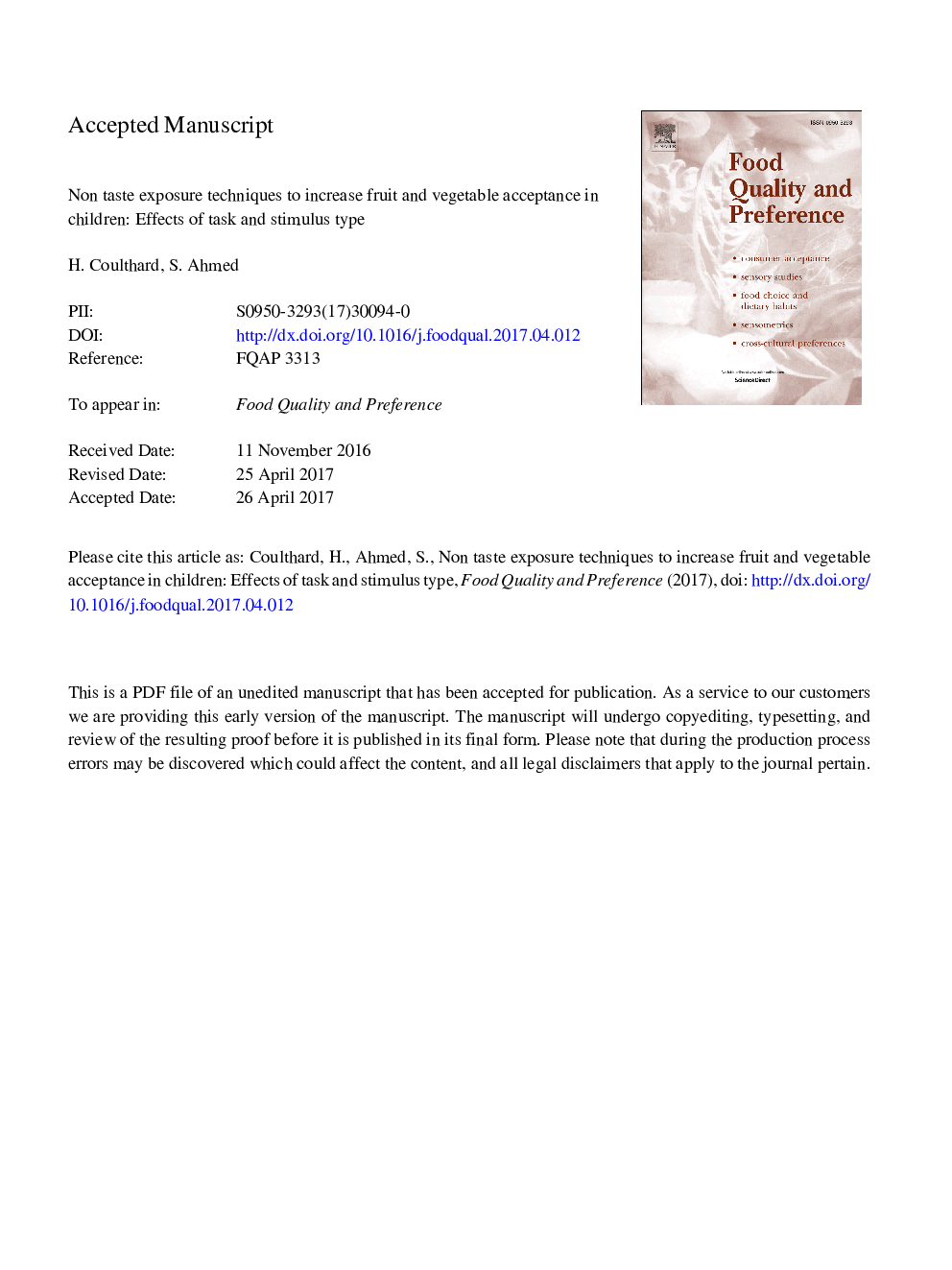| Article ID | Journal | Published Year | Pages | File Type |
|---|---|---|---|---|
| 5735989 | Food Quality and Preference | 2017 | 20 Pages |
Abstract
The strategies adopted to encourage children to taste fruits and vegetables (FV) tend to focus on immediate tasting. However there is some recent research which suggests that non-taste sensory tasks may encourage acceptance. The purpose of the current study was to compare the efficacy of different sensory tasks in encouraging novel food acceptance in school children. One hundred and two children aged between 4 and 8 years (53 males and 47 females) were recruited from schools in the Leicester region of the UK during September-December 2015. Children were randomly allocated to one of four conditions, each of which varied according to two factors; a stimuli factor (real FV vs photographs of FV) and a task factor (bingo game vs categorisation). Baseline stimuli preference ratings for featured FV and food neophobia were measured. After the task child consumption (grammes) of a novel fruit (pomegranate) and a novel vegetable (fresh soya beans) was measured. The use of real FV tasks led to increased consumption of both the fruit (+4.01 g, p < 0.001) and the vegetable (+3.42 g, p < 0.05). The conditions in which children played a game, compared to a sorting task, led to increased vegetable consumption (+2.47 g, p < 0.05). This is the first study to examine whether playing games with foods immediately before a tasting session will increase consumption. Rather than emphasising tasting alone, it is believed that more creative strategies should be adopted to make FV tasting exciting.
Related Topics
Life Sciences
Agricultural and Biological Sciences
Food Science
Authors
H. Coulthard, S. Ahmed,
